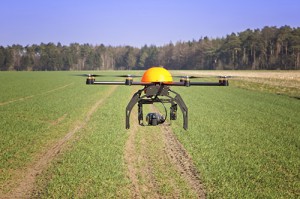 I was recently asked to research personal drones. While I have been watching the development of drones for some time, I didn’t know much about the details, so this is a perfect opportunity to learn.
I was recently asked to research personal drones. While I have been watching the development of drones for some time, I didn’t know much about the details, so this is a perfect opportunity to learn.
Definition
The term drone originally referred to the unmanned aerial vehicle (UAV) or unmanned aerial system (UAS) used by militaries to navigate war zones. Some of these were and are used for surveillance and some even carry weapons. This term often conjures up safety or privacy concerns. Personal drones, in contrast, are remote controlled vehicles typically priced under $1,000 that are small enough to be carried by one person. Personal drones often carry GoPro style cameras, but no weapons. They are commonly used for recreational filming or in industries such as farming or mining to view terrain or crops. Unlike satellite images, drones can provide video as opposed to still images, and they can deliver those images on a cloudy day.
Availability
A new personal drone is the Iris+ by 3D Robotics, which is a quadcopter available from Amazon for $750, base price. This drone weighs 8.2 pounds and comes with a mount for a GoPro camera. Paired with a GPS enabled Android device, you can set it to provide third person viewing. Synch it with your smartphone or wearable and it will follow you on your adventure, creating the ultimate selfie. Skydiving, surfing or skiing can now be filmed as if you had your own videographer. Paired with a tablet, you can draw the flight path that you want it to take and it becomes completely autonomous. This unit has a flight time of 16-22 minutes on one battery charge.
Another popular personal drone is the DJI Phantom 2 Quadcopter. This has a flight time of 25-28 minutes and comes with a mount for a GoPro 3 camera. You can program a flight path for this device by pairing it with an iPad. This unit weighs in at 9 pounds and sells for a base price of $829.
There are also kits available for hobbyists who want to build their own drones or micro drones that fit in the palm of a hand. Personal drones are becoming more popular and more available, but are they legal?
Legality
Are personal drones legal to fly? It depends. If you live in Washington D.C., the answer is no. According to an article earlier this year in Time magazine, there is a Flight Restricted Zone for ten nautical miles surrounding Reagan International Airport. This includes even small personal drones. Yosemite National Park in California and Zion National Park in Utah have similar bans, according to the article. Outside of those areas it is legal to fly a drone, based on FAA policy, if it remains under 400 feet. If you are within three miles of an airport you must notify the tower that you will be flying your drone. There is no cohesive policy yet from the FAA, so I expect that there will be a patchwork of policies that will be put in place until an umbrella policy is enacted. In other words, we are still in the wild, wild west on this one.
Privacy
Legality is one thing, but privacy is a completely different issue. As a society, we are still struggling with issues of privacy concerning Google Earth from satellites or Google street view from roving cars. Google does a reasonable job of filtering out faces and license plates, but there have been lawsuits by people who claim they are recognizable in the images, thus breaching their privacy. Personal drones can go where satellite and car cameras cannot, so we are going to have to collectively deal with how we respect each other’s privacy now that we can fly a camera into someone’s backyard. What are proper boundaries we can agree on? What actions need to fall under a policy or law?
Thoughts
I think this is a case where new technology has gotten out in front of policy. How we use this technology will determine how laws are shaped. Personal drones have many applications, from entertainment to farming to mining to disaster relief. I can see a personal drone or drones being used to survey damage from a natural or manmade disaster. They could help aid organizations quickly develop relief plans and possibly even save lives.
There are a lot of positive applications for drones if only we are careful about how we use them and how we respect others’ rights. The future use or restriction of this technology is up to us. Let me know how you feel about the use of personal drones. Are you excited or apprehensive? Do you think they represent an opportunity or a threat? Let me know.
 About Kelly Brown
About Kelly Brown
Kelly Brown is an IT professional, adjunct faculty for the University of Oregon, and academic director of the UO Applied Information Management Master’s Degree Program. He writes about IT and business topics that keep him up at night.
